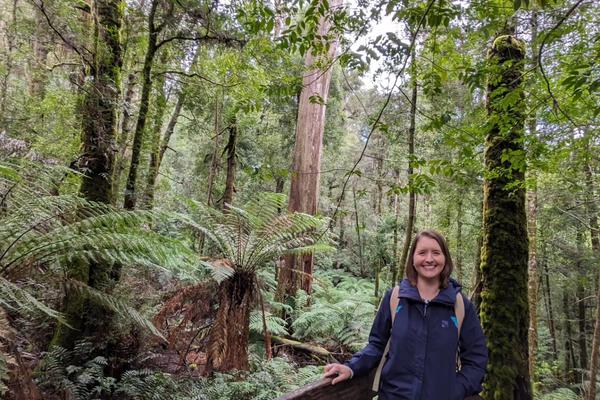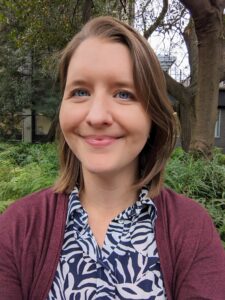University of Oxford
11a Mansfield Rd
OX1 3SZ
UK

Dr Molly Grace’s work celebrates the wins in conservation – a subject that might seem all doom and gloom when we think about the biodiversity crisis. Working on international species recovery, Molly is clear that it’s not just about preventing extinction: nature really can bounce back.
As a biology undergraduate, Molly worked in a bird cognition and communication lab. She started by cleaning cages, and over the years began to assist with the research being done in the lab. Eventually, the opportunity came to design her very own study: “I realised I really liked the scientific process – coming up with questions and then having the tools to actually find the answers.”
Molly’s work now focuses on species recovery, a path that was set when she completed her PhD very close to the last stronghold of the threatened Florida panther. Becoming interested in conservation planning for the subspecies, she started thinking about what an ecologically functional population would look like and whether that was viable as a conservation goal.
This concept of recovering ecologically functional populations became the basis for the fellowship that brought her to Oxford in 2017. Since then, she has worked with the International Union for Conservation of Nature (IUCN) to lead development of the Green Status of Species, a global standard for tracking species recovery to ecologically functional levels.
“For a very long time, the focus of species conservation has been on preventing extinction. This is absolutely important, but if conservation is framed just in terms of reducing extinction risk, we can end up with unambitious goals. It’s exciting to me that the Green Status allows us to tell a more complete story for a species.”
She adds: “A lot of the time, a huge amount of effort and resources is spent preventing declines – running as fast as we can to stay in the same place. A result of ‘no change’ is not always inspiring, even if it represents a huge win.” To counteract this, the Green Status of Species includes ‘Conservation Legacy’ – a way to communicate how much decline has been prevented by past conservation. Molly explains: “This allows people to shout about and celebrate those wins. Having a metric like that is really important in demonstrating the impact of conservation projects.”
Molly represents a vibrant movement towards loftier goals for what realistic success can look like in conservation. Spearheading this from the IUCN symbolises a global collaboration: “It has been wonderful helping lead such a huge international initiative,” Molly says. “This work has taken me around the world working with amazing colleagues – and I have learned more than I ever thought I would know about hundreds of species of animals, plants, and fungi from every corner of the planet!”
With the backdrop of the biodiversity crisis, what keeps her motivated? “One of the metrics we estimate for the Green Status is called ‘Recovery Potential’, which measures how much recovery could we achieve if we put our mind to it – accounting for things like habitat loss and climate change. For many species, this Recovery Potential is pretty high! This is really motivating to me – if we can mobilise resources, there is still time to achieve huge wins for nature.”
Molly is also involved in a research partnership with the not-for-profit Accounting for Nature, working to provide scientific basis for robust, transparent environmental accounting: “As interest in measuring changes in the state of nature grows, it’s critical that we do this in an evidence-based way to avoid greenwashing.”
Coming to Oxford was a huge turning point for Molly: “The Department of Biology is such a nexus of collaboration in the UK and beyond, and my international network has grown exponentially. Working here, you really feel like you are helping shape the global conversation.”
After nearly eight years at Biology, Molly is soon moving on to a well-earned opportunity in the School of Geography and Environment, as Course Director for the Biodiversity Conservation and Nature Recovery MSc: “Teaching is one of my passions, so I’m very excited to get started. Given that Geography is just over the road from Biology, I anticipate continued collaboration in the future!”
This post was originally published on the Biology Department website.

